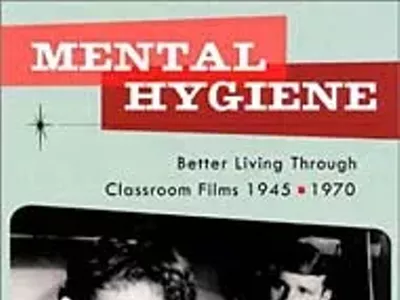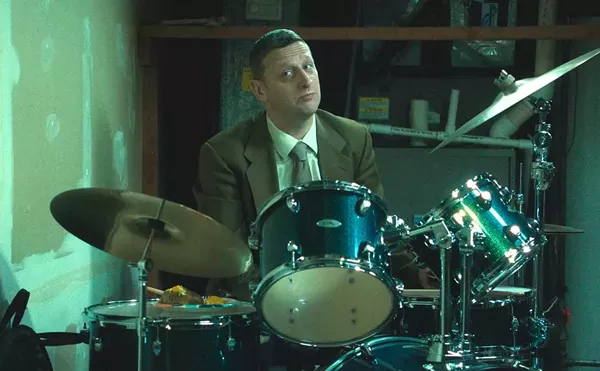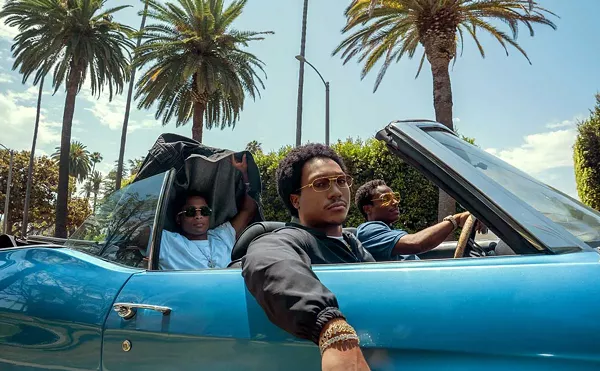
Audio By Carbonatix
[
{
"name": "GPT - Leaderboard - Inline - Content",
"component": "35519556",
"insertPoint": "5th",
"startingPoint": "3",
"requiredCountToDisplay": "3",
"maxInsertions": 100,
"adList": [
{
"adPreset": "LeaderboardInline"
}
]
}
]
Errol Morris has been making subversive documentaries since the late 1970s, but with his latest film, Mr. Death: The Rise and Fall of Fred A. Leuchter, Jr., he tackles the highly sensitive topic of the Holocaust by interviewing people – especially Leuchter – who would deny that the mass killing of Jews in 1940s Germany ever happened. Morris’ unorthodox approach certainly sets Mr. Death apart from other documentaries on the Holocaust, although his motivations and conclusions aren’t actually different.
Metro Times: It seems like the topic of Mr. Death has touched some nerves ...
Errol Morris: Well, I wouldn’t call it controversial for people who’ve seen it, but I think it’s an interesting, powerful movie.
MT: Some people feel that Fred Leuchter and other Holocaust deniers should not have a podium, and that you’re giving them one with this film.
Morris: Well, that’s ridiculous. The whole argument that (the subject of) Holocaust deniers should not be addressed is a kind of deep misunderstanding about how the world works ... That was an attitude taken about Hitler in the ‘30s, that somehow you don’t address it and it goes away. I am not interested in defending Holocaust denial or even making it appetizing. It’s pernicious – it’s wrong – it’s bad. It’s just a question of how you deal with things that are wrong. That’s the strength of the movie – not the issue of whether the Holocaust happened. It’s an examination of how someone comes to believe in something that is so patently false. It’s the mechanism of belief in untruth which deeply fascinates me.
MT: Do people imply that you’re committing some kind of immoral act by portraying Holocaust deniers?
Morris: No. I really think the criticisms are misplaced, but I understand where they’re coming from. The idea is that people are susceptible to lies – and that by printing lies, even with qualifications, there are people who will believe them just by hearing them. But in a society surrounded by media – we live essentially in a media fishbowl where we’re being bombarded by information (I might add that much of it’s false information) – it’s very important to make people conscious of these ideas, how they are being manipulated by them, to show clearly that they are wrong and pernicious. That is one of the things that the movie does.
MT: Why do you choose to make documentary films?
Morris: I started interviewing people long before I became a filmmaker ... My interviews have always been a kind of investigative tool for me. I’ve evolved this strange style of filmmaking based on interviews – based on monologue from interviews, if you like.
MT: Your voice is not the predominant one in most of your films. You let people speak for themselves.
Morris: At least I’d like to think so.
MT: That’s intriguing. It makes me think of you as a different kind of documentarian from most. In fact, I don’t think of your films as documentaries in many ways. For instance, I think of Vernon, Florida (1980) as a comedy.
Morris: Well, Mr. Death is a comedy as well ... I get snookered by Mr. Death. All questions about the film come down to questions about what I think about Fred Leuchter, what I think the film is about. I’m forced into this explication about the movie, but I feel the movie speaks for itself very strongly, and I wonder if I do it a disservice by endlessly trying to explain what’s going on. Yes, it’s a very funny movie in parts. That is something that I very rarely get an opportunity to talk about, although people who see it clearly find that it’s funny – at least parts of it.
MT: Where do you think you fit into Mr. Death?
Morris: Mr. Death is a very personal film too. I am a Jew. My mother’s family came from the area around Kraków. What would it have been like for us, for example, if my grandparents had not emigrated to the U.S. at the beginning of the last century? I would say that is the central personal idea behind Mr. Death – this recovery from denial. Because it’s not just denial of the Holocaust – it’s a denial-of-death story. It’s a much more interesting story than is described on the face of the surface story alone. It’s a denial of death, a denial of reality, an attempt to avoid the world. I wonder, and I’d like to think that the viewer wonders, whether this has something to say about the Holocaust itself.
MT: It seems somewhat inflammatory, because just mentioning the Holocaust evokes a knee-jerk response out of so many people. I would be scared to go anywhere near the topic myself.
Morris: I can’t say that it didn’t scare me – it’s just that I did it because I had a need to do this thing.





